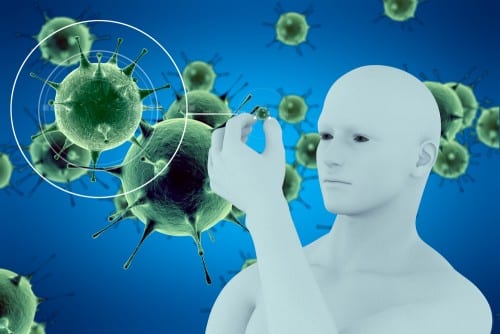Israeli research: the immune system develops already at the beginning of pregnancy

The immune system of mammals is able to successfully deal with a wide variety of threats, and one of its most special qualities is the ability to adapt to threats it has never encountered before. A few days from the moment an unfamiliar virus or bacterium reaches our body, cells in the immune system already know how to produce unique antibodies against them (B cells), and other cells (T cells) know how to recognize the foreign agent and activate a strong immune response to eliminate them. In fact, the immune system is much more complex, and science knows dozens and hundreds of other types of cells and proteins that participate in the various stages of the immune response. However, despite the great knowledge about the functioning of the immune system, scientists know almost nothing about its initial development processes, in the early stages of fetal development. It is very difficult to take a blood sample from a healthy 12-week-old fetus, which is only about 5 cm long...
Thanks to the fertilizations
To overcome the problem, pediatricians from the "Safra" hospital in Tel Hashomer were helped by the fact that there are many in vitro fertilizations in Israel - a procedure that usually results in many fetuses. In such a case, the doctors usually do "dilution" - abortion of some embryos, to allow the normal development of the rest. The researchers used cutting-edge methods from the field of molecular biology to locate in fetal blood samples the genes for the various receptors on the outside of B cells and T cells - it is these receptors that allow the cells to bind to the foreign bodies, and activate the various arms of the immune system. The research method allowed the scientists to obtain an accurate genetic record of the variety of receptors in each blood sample. The researchers took samples from fetuses at the 12th, 13th, 22nd and 26th weeks of pregnancy, as well as from newborn babies, thus compiling the immune system profile throughout all three trimesters of pregnancy.
starting from the beginning
To get as wide a variety of receptors as possible, which can recognize any foreign factor, the immune system mixes the DNA of the cells. This allows the random creation of very many receptors, and then, their more precise matching. Surprisingly, the data published in the scientific journal Science Translational Medicine revealed that this confusion begins already at the earliest stage tested (week 12) - much earlier than scientists had thought until now. The findings also showed that the mixing is not as random as previously thought, and there seems to be some preference for certain genetic combinations. Another surprising finding was that an immune response in response to a foreign substance is also formed at a very early stage of pregnancy - probably week 18-20. Until now, the researchers believed that such a reaction comes at a much later stage, and the new findings indicate that the immune system probably begins to "train" already in the middle of pregnancy - apparently through an encounter with substances from the mother's blood system.
diagnose and cure
"The new research system allows researchers to understand the normal state of the development of the immune system in the fetus," explains the head of the research team, Dr. Raz Somech, immunologist and director of the general pediatric department at the "Safra" Children's Hospital in Tel Hashomer. "Understanding the normal situation also allows us to monitor the pathological situations - in which there is a problem with the development of the immune system. This happens in various diseases, as well as in situations where the development of the fetus is delayed." Dr. Somech led the research with his student, Dr. Erez Ravavi, Atar Lev, the gynecologist Dr. Boaz Weiss who led the work with the embryos, as well as with researchers from the American Harvard University, who did the genetic sequencing. The researchers are now focusing on efforts to find an immunological "fingerprint", which will make it possible to identify various problems such as infections or other disorders in a relatively simple sample. The researchers hope that early identification and a better understanding of diseases or disorders that harm the immune system, will also allow finding ways to heal in the future, already during pregnancy.

2 תגובות
There is an opinion that an immune system that fights a cold war (high fever, runny nose, etc...) will be
More resistance in the future in the face of unknown threats.
If we accept everything from the ready, the child may be more vulnerable to diseases in the future.
So that his salary came out at his loss.
When I once came to the doctor regarding the childhood illnesses of my daughter who keeps getting sick again and again and is liquefied and has a high fever, the doctor asked if she had ever been to the emergency room? I said no… He asked if she had ever been hospitalized? And I said no... so the doctor said the girl is perfectly fine and her immune system is excellent and that is why in the garden she is sick and healthy again and again. According to him, every child gets sick about thirty times by the age of 3 with diseases with fever. For some it is scattered and for some it is concentrated. According to him according to the description of my wife and mine - we are already in the middle and towards the end.
If only he could really strengthen her immune system and prevent us from getting to know all those thirty different viruses that she fights successfully while keeping us and her sleeping peacefully at night, it would be wonderful...